
8 min lesen
August 5, 2024
An ERP system (Enterprise Resource Planning) integrates and optimizes essential business processes within a company. Finance, inventory management, and human resources are efficiently managed within a unified software solution. In this guide, you will learn what ERP is and how to choose the right ERP system for your company.
An ERP system integrates various company resources and processes into a single software solution to enable comprehensive planning and management. Whether it’s financial accounting, inventory management, or project management, ERP software offers modules that cover all typical business areas and thus support the entire ERP consulting process.
Unified data management eliminates data redundancies and improves information flow between departments. Thanks to its modularity, ERP systems can be flexibly adapted to specific business needs, facilitating both updates and the introduction of new requirements.
Additionally, a well-implemented ERP system promotes collaboration between teams through integrated document management and project management functions. The automation of routine tasks increases employee motivation and reduces workload pressure on staff.
The careful selection of an ERP system is crucial, as it lays the foundation for a company’s efficiency and competitiveness. A poor decision in ERP selection can have significant negative effects on efficiency and profitability.
A flawed selection process often results in companies continuing to use inefficient systems that do not meet their needs. Conversely, a successful ERP implementation supports the optimization of business processes and improves compliance with regulatory guidelines.
By standardizing processes, ERP systems increase efficiency and reduce costs within companies. Therefore, ERP consulting and the selection process should be carried out systematically to make a well-informed decision about the right ERP system.
An ERP system offers numerous advantages that optimize your business processes and increase your efficiency. Here are 10 key benefits that will give you the decisive edge in implementing your ERP project:
With a modern ERP system, you can tap into new business fields more quickly and position your company sustainably. By integrating and automating core business processes, market entry is accelerated, allowing you to respond faster to new opportunities. Don’t rely on outdated systems—embrace the technology of tomorrow to lead in your industry.
The first crucial step in the ERP selection process is setting up the ERP project and defining a project management strategy. This includes establishing the framework conditions, including the people involved and their roles.
The selection process for an ERP system should follow a structured approach. It typically consists of seven steps in the ERP selection procedure to ensure comprehensive research and analysis. Vendor-independent consultants can help make the process more effective.
Process documentation is used to evaluate the effectiveness of current workflows. A weakness analysis helps identify existing problems before implementing an ERP system. Existing processes should be thoroughly examined to uncover optimization potential.
The results of a GAP analysis highlight deviations from best practices and provide initial ideas for the future system landscape. Companies should also explore their digitalization potential to remain competitive.
Goal definition includes both functional and non-functional requirements for the new ERP system. The executive management plays a central role in setting these objectives.
A clear definition of business goals is crucial for successfully preselecting suitable ERP providers. A requirements catalog should include clear and specific expectations for the ERP system to minimize risks during the selection process.
Developing a strategy for ERP selection involves considering critical factors and transition solutions. This ensures that the chosen system meets the company’s specific needs.
The requirements specification is crucial in the early phase of ERP selection, as it helps identify suitable ERP systems. It outlines all the requirements that the new software must meet and serves as a tender document for vendors. These documents are essential for the further progress of the project.
A well-structured requirements specification includes business objectives, information about the IT infrastructure, and an overview of functional requirements. The requirements should be formulated in a solution-neutral manner to avoid excluding the best proposals from vendors. This lays the foundation for the later selection and implementation of the ERP system.
A thorough market analysis and the creation of a longlist are crucial for selecting suitable ERP vendors. The market analysis includes identifying potential ERP vendors that meet the company’s defined requirements.
A comprehensive market analysis provides a clear understanding of challenges and helps set realistic expectations regarding the capabilities of potential ERP systems. Selection criteria should include functionality, user-friendliness, and implementation costs.
Since the ERP market is constantly evolving, regular adjustments to the selection strategy are necessary. Continuous market monitoring is essential to keep up with developments in the ERP sector.
A detailed evaluation and vendor presentations are crucial in selecting the right ERP system. Vendor workshops and demonstrations enable an in-depth assessment of software solutions based on concrete use cases.
The systematic evaluation of vendors leads to the creation of a shortlist based on workshops and additional criteria. This allows the company to identify the best ERP vendors and make an informed decision.
Practical workshops with vendors help evaluate solutions based on real-world use cases. Here are some advantages of these workshops:
After selecting ERP vendors, contact is made, followed by detailed vendor presentations or workshops for ERP selection consulting. This enables an accurate assessment of the proposed solutions and supports decision-making.
The requirements derived from workshops play a key role in narrowing down the vendors during the shortlist creation. The shortlist should only include vendors that meet the established criteria and requirements.
Additional filters, such as the focus matrix, help identify the best ERP vendors based on strategic and specific criteria. The focus matrix considers the strategic alignment and company-specific selection criteria.
Decisions made during the selection process are systematically documented to ensure transparency. This allows companies to ensure that all critical factors are considered.
The implementation of an ERP system requires careful planning to ensure the successful execution of all project phases. This includes project management up to acceptance as well as test management.
Long-term partnerships with the vendor are of great importance in ERP selection. A tailored ERP platform is essential to meet the company’s specific needs.
Companies must decide on a system and, if necessary, a vendor during ERP selection. It is important to consider a long-term partnership with the vendor.
A tailored ERP platform is crucial to address the company’s specific needs. At the beginning of ERP selection, project and timeline, financial framework, company size, and system complexity must be taken into account.
The final decision should be based on a comprehensive evaluation of vendor offers and total costs. It is crucial to include all ongoing costs, including maintenance fees, in the contract design.
Contract negotiations should cover the license agreements and service-level agreements (SLAs) of the ERP vendor. This ensures that all critical aspects of future collaboration are clearly defined.
The implementation of an ERP system requires a clear strategy, software installation, user configuration, and employee training. A well-planned ERP selection process helps increase employee acceptance and minimize potential resistance during deployment.
Flexible growth is supported by cloud/SaaS models, enabling rapid scaling without IT investments. A modern ERP system should seamlessly integrate various systems to avoid data silos and improve efficiency.
Effective project planning during the ERP implementation process is crucial for managing timelines and resources efficiently. A detailed project plan for ERP projects should be created early to allocate time and budget buffers for unforeseen events.
A structured, step-by-step approach is essential for the timely completion of ERP implementation phases. An enterprise resource planning project should be well-established.
Involving employees in the selection process promotes acceptance and contributes to the success of the ERP project. The inclusion of departments and early communication are essential measures to increase user acceptance of the new ERP system.
Training key users during the initial training phase is crucial, as they serve as a bridge between the ERP project management team and the workforce. Training should be department-specific to facilitate user adoption during ERP implementation.
To successfully prepare employees for the use of a new ERP system, realistic scenarios and concrete examples from daily work should be provided.
There are various challenges in selecting an enterprise resource planning system, such as increased demand, a fragmented market, and the specific requirements of mid-sized businesses. To identify weaknesses in the selection process, selection criteria should be reviewed, and potential risks should be identified.
The emotional involvement of employees is crucial for the success of an ERP implementation project, as different reactions to change may arise. A structured communication approach is necessary to guide employees through the various emotional phases during ERP implementation.
If problematic processes are not optimized before ERP implementation, a bad process remains a bad process and may even become more ingrained. Agility in ERP systems is essential to quickly adapt to changes and avoid long adjustment periods.
A future-proof ERP system should have expansion capabilities to keep up with the changing needs of the business. It should be prepared for internationalization, offering multilingual support and multiple currency options.
The performance of an ERP system must be optimized for real-time processing of large data volumes to ensure short access times. The integration of IoT technologies into ERP systems can provide significant economic benefits for businesses.
ERP systems help companies comply with the General Data Protection Regulation (GDPR) by ensuring structured data management.
Cloud ERP systems provide the ideal solution for businesses seeking flexibility and scalability. They allow access to systems anytime and from anywhere without requiring significant investments in hardware and infrastructure. The benefits include:
Take the opportunity to future-proof your business. By implementing a modern ERP system, you can digitalize your business processes and ensure that you remain flexible and agile in responding to market changes. Don’t wait any longer—start your digital transformation today with BITECC as your partner for customized ERP solutions.
Rely on BITECC’s experience for the successful digitalization of your business.
Contact us – Our experts are ready to support your project’s success. With over 10 years of experience in software development and a team of 70+ senior and mid-level developers, we offer the expertise you need to achieve your business goals. Together for your success – Contact us today!
Choosing the right ERP system is one of the most important decisions a company can make. A thorough analysis of existing systems, clear goal definitions, and a well-structured selection process are crucial to finding the right ERP solution.
With a comprehensive market analysis, detailed vendor evaluations, and careful implementation, a company can significantly improve its efficiency and competitiveness. Seek support from experienced consultants and ensure that your ERP system is future-proof and scalable.
An ERP system is a brilliant software solution that unites all business resources and processes! It enables much more efficient planning and management.
Choosing the right ERP system is super important because the wrong decision can massively impact your company’s efficiency and profitability! Choose wisely to ensure long-term success!
The situation analysis in the ERP selection process includes examining existing systems, assessing the efficiency of current workflows, and identifying weaknesses. This allows you to make targeted improvements!
An ERP requirements specification should definitely include business goals, details of the IT infrastructure, and a clear overview of functional requirements! This ensures a smooth selection process!

October 8, 2025
The biomethane sector is entering a decisive phase. Driven by climate targets, stricter regulations, and rising demand for renewable energy, the market is experiencing rapid growth. Yet, this expansion also creates new op...

February 3, 2025
The future of ERP lies in more efficient and flexible business solutions. In this article, you will discover how .NET-based ERP systems help you optimize processes while remaining adaptable. Explore the key benefits and technological advancemen...